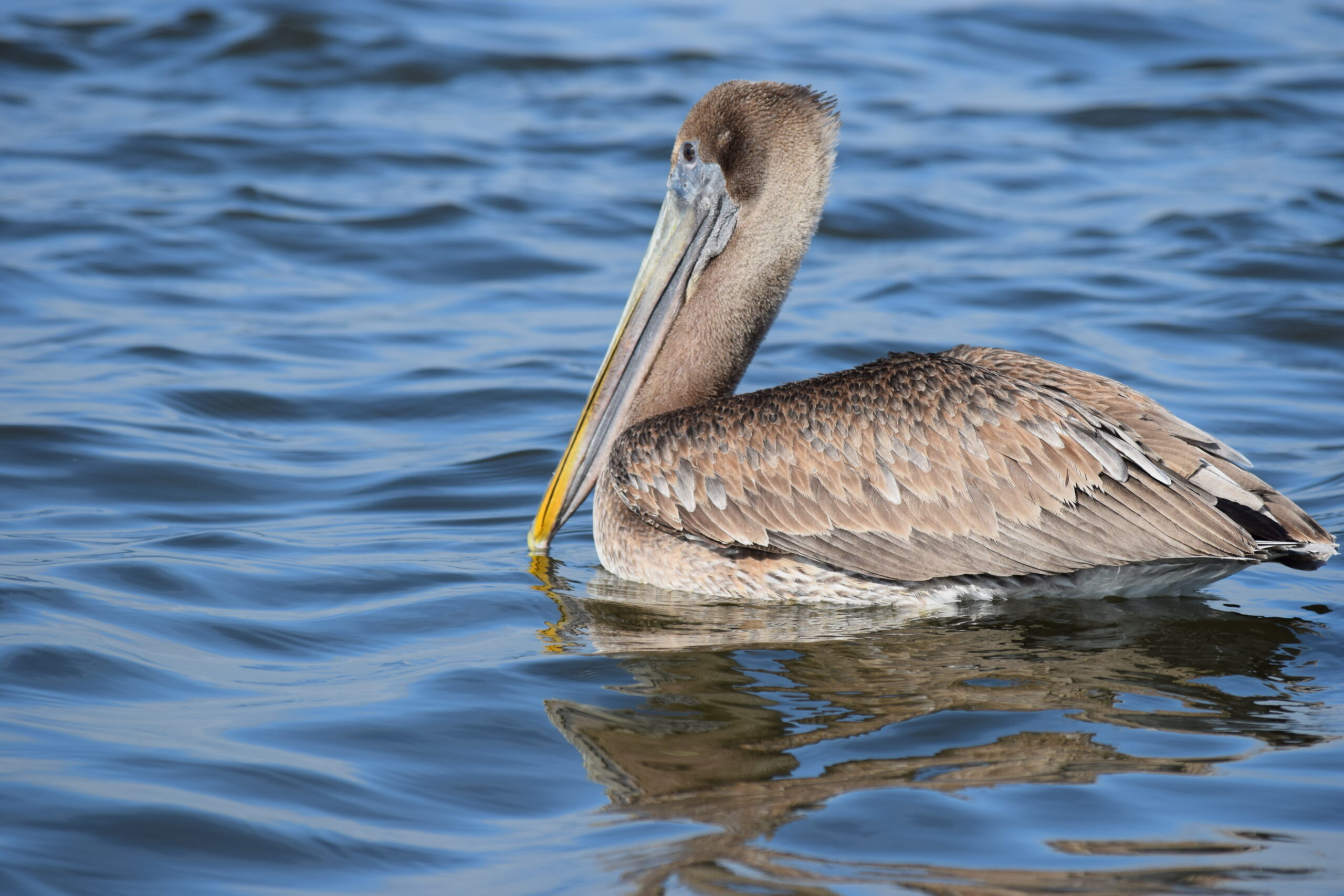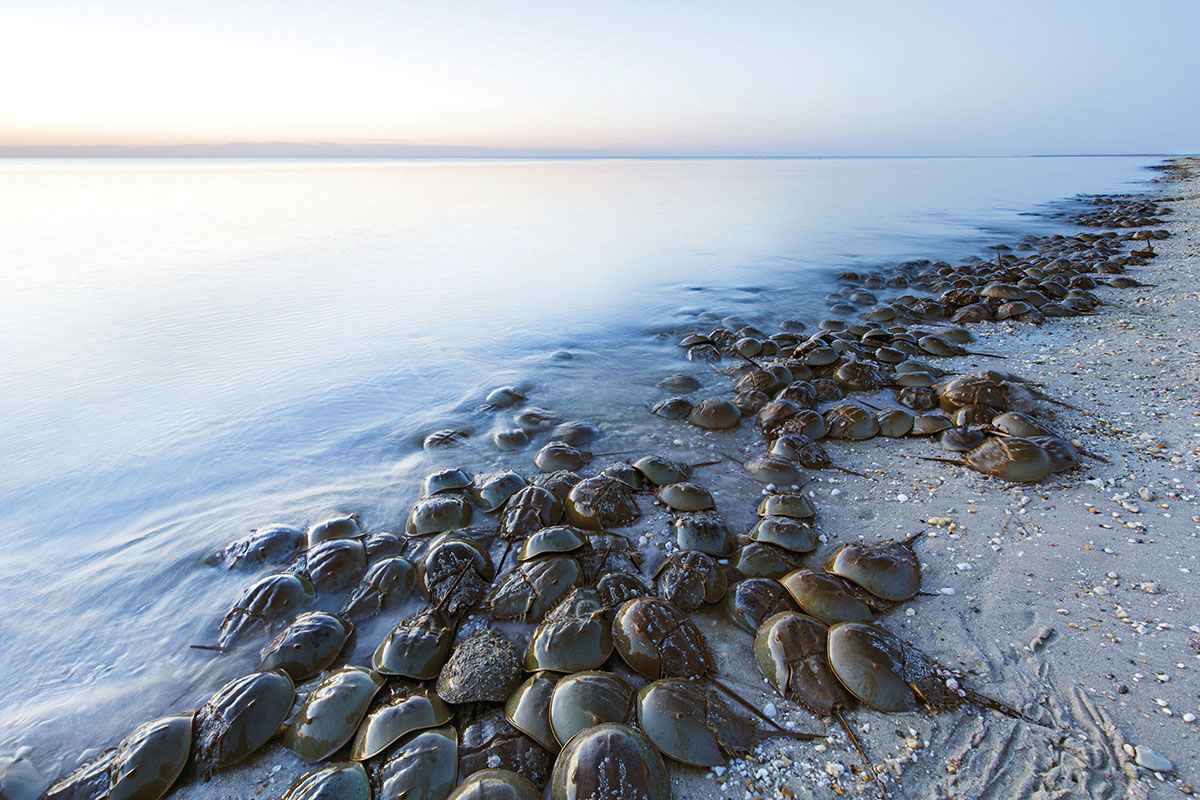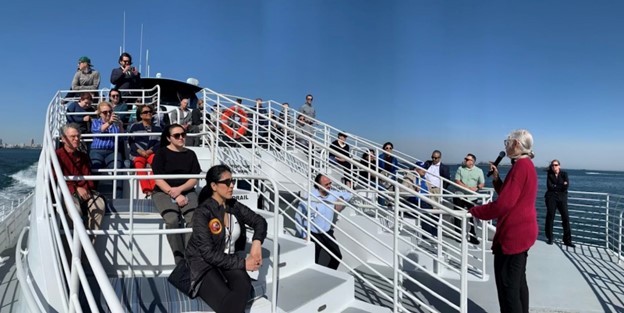Offshore wind energy presents an exciting opportunity to reduce greenhouse gas emissions to limit the most serious impacts of climate change. The Biden Administration has made it clear that offshore wind in the Gulf of Mexico is a key focus of the Administration’s climate initiatives. However, it’s a little-known fact that waters within the three-mile boundary of the coastline fall under state jurisdiction.
In December 2023, Louisiana’s State Mineral and Energy Board (part of the Department of Energy & Natural Resources) approved two operating agreements allowing developers to begin the process of developing offshore wind projects in Louisiana waters. These represent one of the few state-led efforts to develop offshore wind projects. While these first two projects may support the development of an offshore wind supply chain in the state, the likely environmental impacts make these risky ventures.
Responsible Planning for Offshore Wind
All energy generation has impacts. Thus, it is critical that offshore wind energy projects are deployed responsibly, and that every effort is made to avoid, minimize, and mitigate impacts to wildlife. Developers and state officials need to show they have the data and review mechanisms in place to ensure responsible planning and construction of these projects.
Unfortunately, Louisiana’s regulatory agencies have not provided clarity on the applied regulatory process for project siting, construction, and operations. Without further clarity, Louisiana’s proposed projects may not be subject to comprehensive environmental assessments and public participation opportunities that can prioritize the needs of Louisiana’s wildlife and people.
To help decision-makers identify gaps and provide recommendations for the planning and regulation of Louisiana’s offshore wind industry, National Wildlife Federation and the Tulane Institute on Water Resources Law & Policy authored a new report, Offshore Wind in Louisiana Waters: Legal Framework for Environmental Review.
Improving Louisiana’s Regulatory Framework for State Offshore Wind
The report details how offshore wind projects can succeed with thorough environmental reviews and avoid unnecessary litigation. Several measures highlighted in the report can help Louisiana’s Department of Energy and Natural Resources strengthen environmental stewardship and regulatory certainty:
- Engage with the U.S. Army Corps of Engineers to discuss federal permitting review for species and habitat impacts to avoid later issues.
- Increase transparency by making environmental studies and provisions of the insurance policies publicly available.
- Allow for meaningful public comment, including ample notice and documentation for review on subsequent changes to Operating Agreements.
- Finalize the state’s wind leasing rules so there is a uniform process that lays out the responsibilities of the State and developers instead of relying on operating agreements.
The responsible agencies in Louisiana have not provided much clarity on the regulatory process for project siting, construction, and operations. In the current landscape, if Louisiana’s proposed projects do not undergo an individual federal review, there may not be a meaningful opportunity to analyze the impacts of these projects’ development on critical coastal habitats.
In establishing a clear regulatory program for offshore wind, state regulators can protect wildlife and communities while supporting planning efforts that avoid conflict between different activities in state waters. Since nearshore development of offshore wind is rare globally, Louisiana’s actions are likely to be precedent setting, making it all the more important that the state gets it right.

Wildlife and Natural Ecosystem Review
The report also highlights the importance of comprehensive environmental reviews for Louisiana’s wildlife and natural resources. Federal review can provide necessary regulatory certainty for developers, opportunities for the public to meaningfully participate in the review processes, and environmental consideration of project impacts that assesses reasonable alternatives as well as mitigation and monitoring requirements.
Each year, hundreds of millions of migratory birds pass through coastal Louisiana as they make their journey through the Mississippi Flyway. These waters are also home to important fisheries and marine life, including several federally protected endangered species, such as Kemp’s ridley sea turtle, the leatherback sea turtle, and Rice’s whale. A number of key federal laws, including the Endangered Species Act, Marine Mammal Protection Act, and Migratory Bird Treaty Act, afford robust protection to these species and habitats.
However, the full extent of protections these laws provide, such as agency consultation with the U.S. Fish and Wildlife Service, would only apply to the proposed projects if the U.S. Army Corps of Engineers issues an individual permit. Yet it remains unclear if these projects will require individual permit review or fall under a pre-approved nationwide permit, which is the case for the majority of projects overseen by the Corps.
Without clarity as to which protections developers will need to adhere to, the permitting processes for Louisiana’s offshore wind projects will be unnecessarily difficult. The primary state-level regulatory review applying to wind projects in state waters is the Coastal Use Permit program, administered by Louisiana’s Department of Energy & Natural Resources (LDENR). This alone is insufficient.
Developing offshore wind in nearshore waters presents a higher likelihood of impacts to wildlife and the environment. Strong regulatory frameworks and processes, and transparent engagement with concerned parties is critical to ensuring that these proposed projects can meet the high bar for responsible deployment that projects in federally controlled waters must meet. We can and must prioritize and balance Louisiana’s wildlife, our natural ecosystems, and people.
Haley Gentry is a William B. Wiener, Jr. Foundation Research Fellow at the Tulane Institute on Water Resources Law & Policy.
 Offshore Wind Energy
Offshore Wind Energy 

